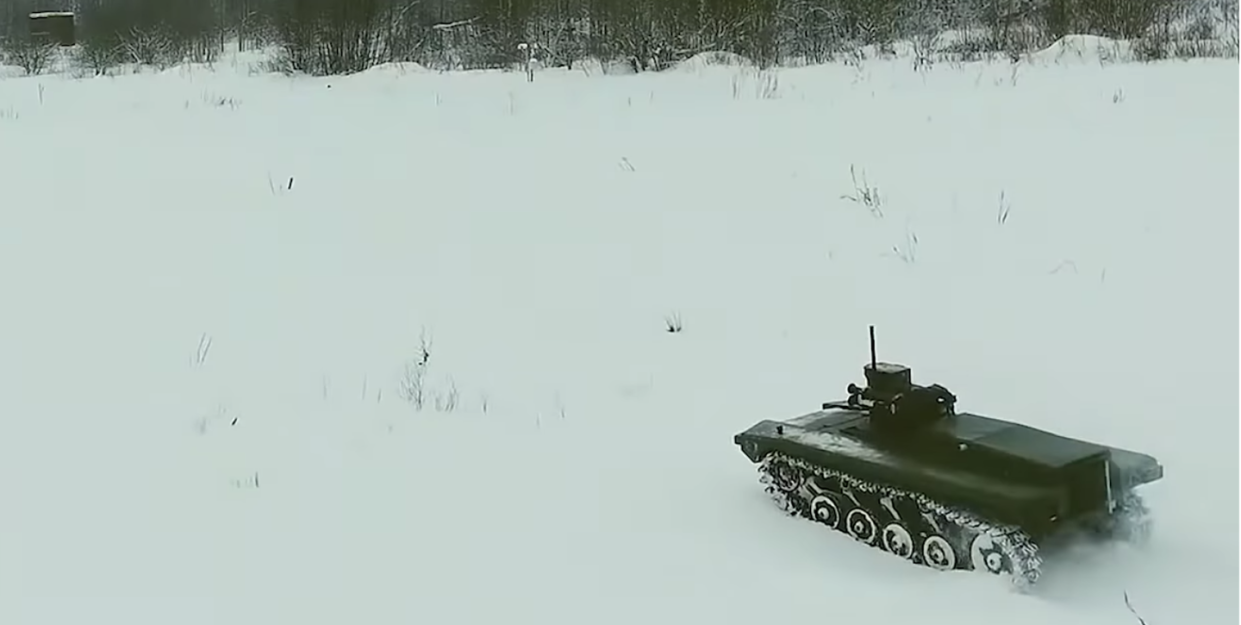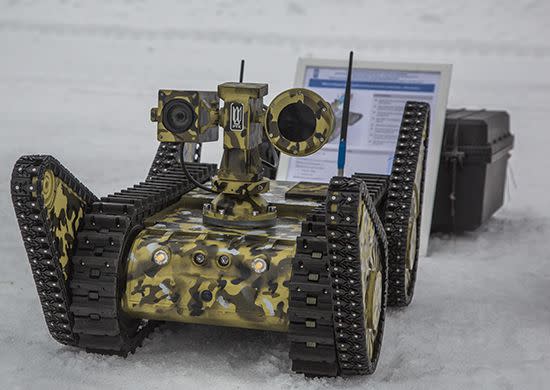Russia's Voice-Activated Military Robots: A Recipe for Disaster

Russian state media reports the country is developing robots that respond to voice commands issued by soldiers.
Moscow is also developing autonomous unmanned ground vehicles (UGVs) that can operate beyond radio signal range.
Russia’s track record on UGVs isn't great, and adding voice commands to the mix could be a recipe for disaster.
Russia is reportedly developing voice-activated unmanned ground vehicles (UGVs) to operate on future battlefields, according to state media. Russia’s National Center for Development of Technologies and Basic Elements of Robotics is working on the voice-controlled system, which will equip the new Marker combat drone “serving side by side” with humans.
Project leader Oleg Martyanov told TASS, a Moscow-based news agency operated by the Russian government and not an independent news source, that the tech will allow commanders to issue orders to the Marker UGV “in the same way they do with human soldiers.”
Engineers originally designed the Marker to be commanded via a tablet. This was later changed to a voice recognition system to streamline the process. Russia is also developing the Marker to operate autonomously, due to its inability to receive wireless commands beyond 2 to 5 kilometers, according to state media.
Russia has been developing UGVs—car-sized tracked vehicles armed with 30-millimeter light automatic cannons and anti-tank guided missiles—for some time now. The Russian military’s first UGV, Uran-9, was field tested in Syria and suffered from serious technical problems, including the inability to receive wireless commands in built-up terrain. Marker, a second generation drone, began testing in 2019.
If this sounds like a bad idea, that's because it almost certainly is.

A voice recognition system, as anyone with a smartphone can tell you, is often unreliable at best. Mix in the sounds of engine noise, gunfire, and explosions, and Marker could have a difficult time understanding any battlefield commands at all. A reliance on armed autonomous combat vehicles could cause unintended consequences, including civilian casualties.
You Might Also Like

